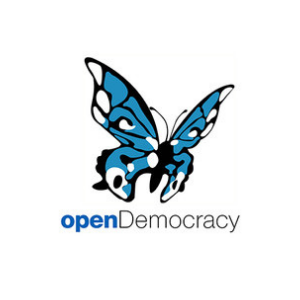
¿Qué sigue para Bolsonaro tras la pandemia de Covid-19?
El presidente de extrema derecha Jair Bolsonaro es uno de los pocos “populistas de la pandemia” que ha empeorado mucho una mala situación

El presidente de extrema derecha Jair Bolsonaro es uno de los pocos “populistas de la pandemia” que ha empeorado mucho una mala situación

The COVID-19 pandemic is transforming virtually every aspect of our lives.

Bolsonaro’s administration is largely responsible for all of this chaos, which has killed 270,000 Brazilians.

Enquanto as instituições não acabam com essa matança deliberada resta à sociedade civil agir.

Cresce fora do país a preocupação com a situação brasileira na pandemia e os reflexos que ela pode ter internacionalmente.

Latin America and the Caribbean are suffering from the twin epidemics of COVID-19 and organized crime and violence.

Even with deaths at all-time highs, Bolsonaro continues to undermine efforts to address the pandemic

Brazil is in critical condition. Latin America’s largest country is experiencing record-breaking death tolls and its health system is teetering on the brink of collapse.

The COVID-19 pandemic is generating monumental challenges for most governments, corporations and societies, both online and off.

When Brazilian President Jair Bolsonaro repeatedly downplayed the threat of COVID-19, Brazilians were understandably confused about the gravity of the pandemic.

Apesar de matar mais homens, a pandemia da Covid-19 parece impactar sobremaneira as mulheres.

Durante a pandemia de covid-19, condomínios buscam informar síndicos sobre como proceder em casos de violência doméstica, que atingem, em número significativo, mulheres.

No livro, a senhora fala sobre sua experiência pessoal, de sair do Brasil no governo Bolsonaro. Como vê o Brasil de fora, nesse momento?

Levantamento mostra que casos de violência contra a mulher aumentaram na pademia e que elas tiveram mais dificuldade para denunciar.

Around the world, responses to the first and second waves of the COVID-19 pandemic are understandably focused on reducing infections and fatalities.

The COVID-19 pandemic is a profoundly urban crisis. The vast majority of the millions of reported cases worldwide are concentrated in overcrowded neighbourhoods and informal settlements.

Na era digital, as cidades enfrentam oportunidades e desafios digitais.

One of the first countries to register a Covid-19 outbreak, South Korea, flattened the curve in stunning fashion. It registered over 22,000 cases, yet fewer than 400 deaths at the time of writing.

At the United Nations, the world’s longest Zoom meeting is underway as presidents and prime ministers meet virtually amidst a pandemic that has killed almost a million people, an economic depression with no modern parallel, and a tide of polarization and division that threatens the social fabric in many countries.

The digital economy has finally arrived.

Even before the tumultuous arrival of COVID-19, many parts of the world were suffering from dangerous polarization and division.

Around the world, COVID-19 is accelerating polarization and division.

Melina Risso, do Instituto Igarapé, fala sobre os índices de criminalidade durante a pandemia

Robert Muggah (apparently an old Scottish name, though he is Canadian) has set up two think-tanks in Brazil, where he is based: the SecDev Group focuses on the digital economy and cybersecurity.

Ninguna ciudad se ha salvado de la propagación letal del COVID-19.

Related concern about state brutality also propels two expert advocates up the list: Ilona Szabó de Carvalho (5th), who set up the internationally-influential Igarapé Institute, which champions citizen-led security, and the American prison abolitionist

As we show in our new book Terra Incognita, COVID-19 is exacerbating multiple forms of inequality within and between countries and cities, and raising fundamental questions about the future of urban living.

Brazil, a country in the world’s top 10 in population and GDP, is in the midst of three destructive crises.

Welcome to the 2020 Virtual Stockholm Forum on Peace and Development ‘Sustaining Peace in the Time of COVID-19’. The open session ‘Strategic Dialogue on Global Trends: Violence and the Coronavirus’, in partnership with the Global Registry of Violent Deaths (GReVD) Consortium.

O Instituto Igarapé utiliza cookies e outras tecnologias semelhantes para melhorar a sua experiência, de acordo com a nossa Política de Privacidade e nossos Termos de Uso e, ao continuar navegando, você concorda com essas condições.

